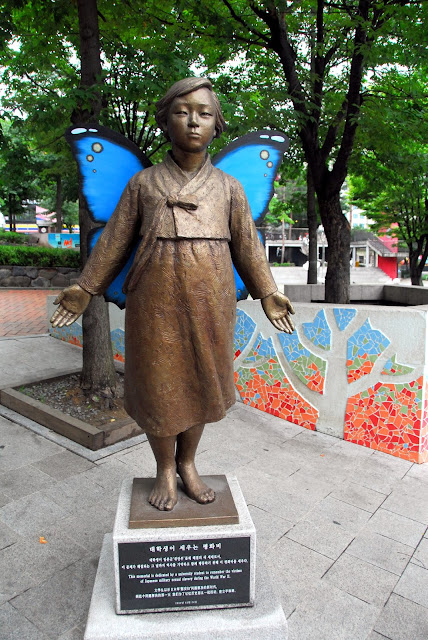I was recently invited to a classical Korean music concert on the Ewha campus that included (and you will hear in the videos):
- The Gayageum, a zither-like instrument that can have 13, 17, 18, 21, 22, or 25 strings.
- The Haegeum, best described as a vertical fiddle with two strings, played with a bow.
- The Daegeum, a large bamboo transverse flute with buzzing membrane that gives it a special timbre.
- The Janggu, double-headed hourglass-shaped drum generally played with one stick and one hand.
The music professor in charge of the concert was KIM, Yusun, pictured here with me after the concert. She holds a Ph.D. in Korean Traditional Music. I received specific permission from her to post these videos.
Musical selection #1 is a calm, reflective and peaceful triptych, pieces played in the royal palace.
Musical selection #2 is a surprise! Mozart's Concert for Flute, Harp and Orchestra (K.299), arranged for Western flute, gayageum and piano.
Still with me? Number three is a beautiful Arirang Medley (I recently blogged on this song).
Finally, a North Korean Gayageum music piece called "The Spring of Choso"
Thank you for considering Korean music!
Marc











